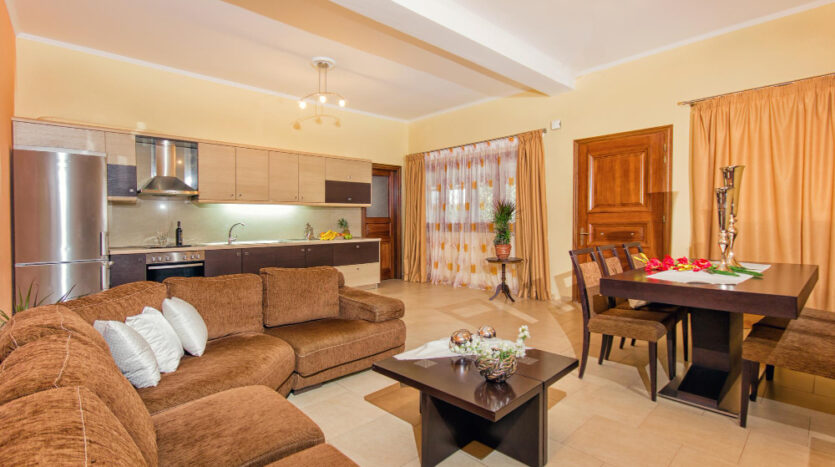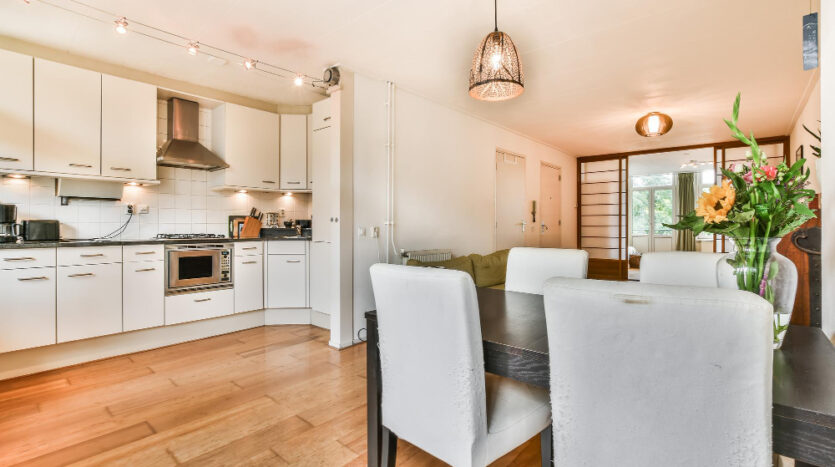Serviced Apartments in Nairobi: Investment Pros and Cons
Introduction
In recent years, serviced apartments in Nairobi have become a favorite for both short- and medium-term stays. They appeal to business travelers, expatriates, and tourists looking for a “home away from home” with hotel-like amenities. But as an investor, should you jump in? This article breaks down the investment pros and cons of serviced apartments and what to consider when planning to furnish and rent in Nairobi.
What Are Serviced Apartments?
Serviced apartments are fully furnished units available for short or long stays, offering hotel-style services such as cleaning, Wi-Fi, and security. They combine the comfort of a private home with the convenience of professional management.
In Nairobi, serviced apartments are concentrated in areas like Westlands, Kilimani, Kileleshwa, Riverside, and near major business districts.
Pros of Investing in Serviced Apartments
1. Higher Rental Yields
Compared to traditional rentals, serviced apartments often command 20–50% higher returns due to premium nightly or monthly rates.
2. Strong Demand
- Business travelers prefer them over hotels for extended stays.
- Tourists and digital nomads enjoy self-catering and privacy.
- Expatriates on short assignments rely on furnished rentals.
3. Flexible Leasing Options
Investors can switch between short-term Airbnb-style rentals and longer corporate lets, depending on demand trends.
4. Value Appreciation
Prime areas like Westlands and Kilimani see consistent property appreciation, boosting long-term capital gains.
5. Professional Management
Most serviced apartments are managed by hospitality companies, reducing the burden on investors.
Cons of Investing in Serviced Apartments
1. High Setup Costs
- Furnishing can cost between KES 800,000–2M depending on the size and standard.
- Initial investment is higher than unfurnished units.
2. Management Fees
Professional managers often charge 15–25% of rental income, eating into profits.
3. Regulatory and Tax Considerations
Serviced apartments fall under commercial use, subject to business permits and taxes. Investors must also account for rental income tax in Kenya.
4. Occupancy Risks
While demand is strong, competition is also high. Poor marketing or location choice can lead to low occupancy.
5. Maintenance and Wear
Frequent tenant turnover means faster wear-and-tear, requiring regular reinvestment in repairs and replacements.
Who Should Invest in Serviced Apartments?
Serviced apartments are ideal for investors who:
- Can afford higher upfront furnishing costs.
- Want flexible rental models (Airbnb, corporate lets, tourists).
- Prefer property management companies to handle day-to-day operations.
- Seek higher yields compared to traditional long-term rentals.
How to Maximize Returns
- Pick the Right Location: Near business districts, malls, and transport hubs.
- Invest in Quality Furnishing: Comfort and aesthetics drive guest satisfaction.
- Market Effectively: Use professional photography and cross-list on Airbnb, Booking.com, and Expedia.
- Hire Professional Management: To maintain standards and ensure guest satisfaction.
- Stay Compliant: Keep up with permits, taxes, and insurance.
See also: Rental Income Tax in Kenya for legal compliance guidance.
Frequently Asked Questions
Are serviced apartments profitable in Nairobi?
Yes, especially in high-demand areas like Westlands, Kilimani, and Riverside, serviced apartments deliver stronger returns than traditional rentals.
How much does it cost to furnish an apartment for service use?
Anywhere between KES 800,000–2M depending on the level of luxury.
Do I need a license to operate a serviced apartment in Nairobi?
Yes, investors may need business permits, tax registration, and compliance with county regulations.
What occupancy rate can I expect?
Well-managed units in prime areas average 65–80% occupancy.
What is the biggest risk of serviced apartments?
High competition and management costs if not planned properly.
Final Thoughts
Serviced apartments in Nairobi are a popular investment class for good reason—they deliver higher yields, strong demand, and long-term appreciation. However, they also come with higher costs and risks that investors must carefully plan for. If you’re considering whether to furnish and rent in Nairobi, weigh both the pros and cons before diving in.
At Sarabi Realty Group, we guide investors in identifying prime serviced apartment opportunities and managing them for maximum returns.
📞 Call us: +254 112 703 835
📧 Email: sarabirealtygroup@gmail.com
💬 WhatsApp: Chat with us on WhatsApp


